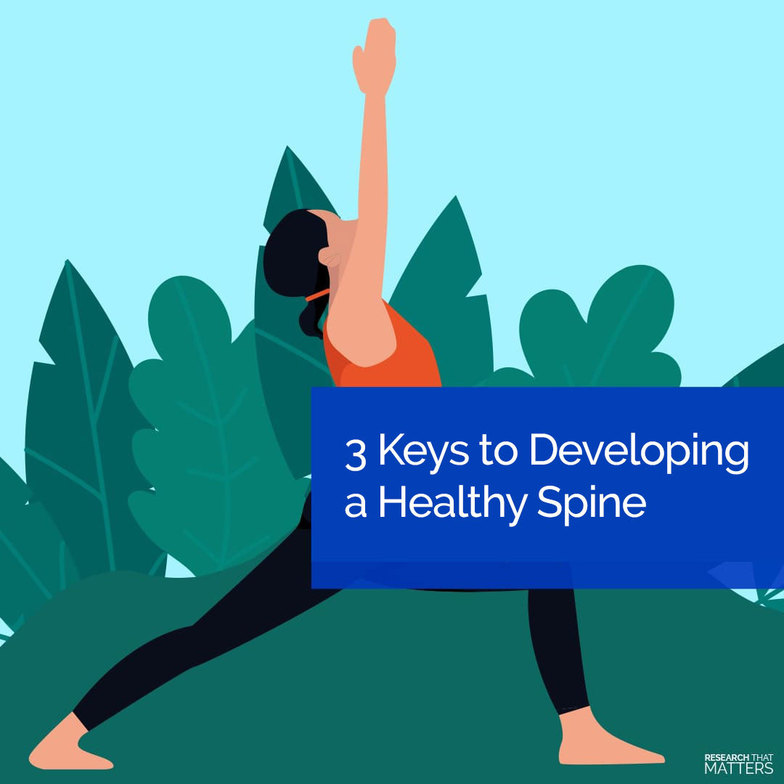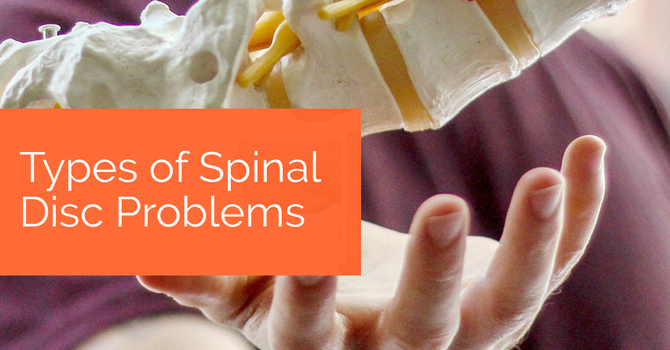Bottom Line:
Developing a healthy spine begins by understanding the three keys of strength, flexibility, and posture. Strength, flexibility, and improving your posture will go a long way towards reducing pain and improving your spine's function.
Your spine is made up of bones (vertebrae), and spinal discs that separate each bone. If you look at someone from the side, you'll notice that the vertebrae and discs create three distinct curves: the neck (cervical), mid-back (thoracic), and low back (lumbar). What you may not realize is that you began your life with a single curve, and the others developed as you began to crawl and walk as a child.
Why it Matters:
As a baby, you had a single c-shaped curve - perfect for optimizing growth and development in the womb. However, once you began to lift your head, your cervical (neck) curve began to develop. Not too much after that, your low back (lumbar) curve formed as you started to take your first steps and walk upright.
The development of these curves is critical to posture as an adolescent and adult, and there are three key factors that support the development healthy spinal curves:
-
Strength: Strong core, shoulder, and leg muscles are essential to providing the proper support for your spine.
-
Flexibility: Flexibility is necessary to maintain a full range of motion, which reduces your risk of injury.
-
Posture: Strength and flexibility will help ease the stress on your back, as will focusing on the dynamics of your posture and being sure to frequently changing positions throughout the day.
Next Steps:
Developing a healthy spine starts when we’re young, and we all know the habits and actions we take today will affect our quality of life for years to come. Set an example and encourage your children to stay active, keep an eye on their posture, and promote activities that strengthen their spine to help support the development of great posture, and a possible reduction in their likelihood of experiencing back pain.
Science Source(s):
Three Steps to Build a Better Back. Harvard Health Publishing. 2015.






